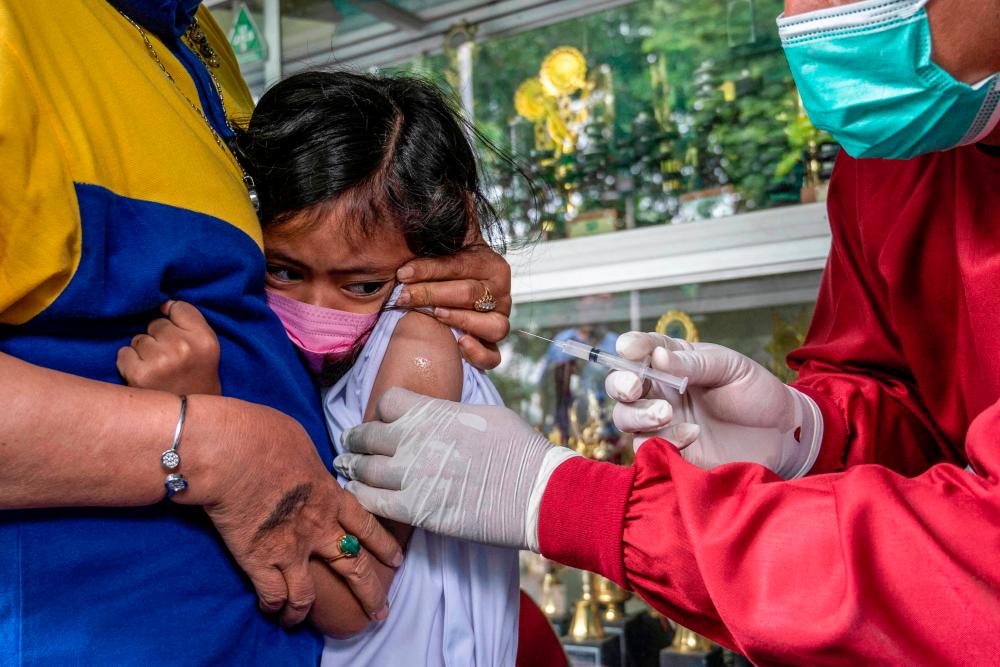KUALA LUMPUR: A case where a mother is planning to sue her husband and health authorities for administering the Covid-19 vaccine on her 13-year-old son has raised some legal questions.
First and foremost is which parent has the final say on medical decisions concerning a minor.
Lawyer Mohamed Haniff Khatri Abdulla said the case raises three key questions.
“Who, or rather which parent, has the right to decide on medical issues regarding a child? This is especially so since there is no law that states vaccination is compulsory. Therefore, parents have the right to decide,” he told theSun.
Secondly, Haniff said in the case of conflicting decisions by the parents, whose consent or non-consent should the Health Ministry adhere to?
Finally, he said in the case of divorced couples with children under the age of 18 with shared custody, who has the right to make the child’s medical decisions?
Haniff said the matter cannot be resolved by the executive branch of the government.
“There is a need for a law which falls under the legislative branch of the government,” he said.
Haniff added that even so, it is difficult for the legislative branch of the government to pass a law regarding vaccinations as it involves a human rights issue.
“What is left is for the third branch of the government, which is the court. Let the court decide based on the issue in question. The court is at liberty to decide,” he said.
The issue arose after a mother of 10 and lawyer, Asiah Jalil, recently faced such a problem when her husband, without her consent, took their son to get his second dose of Covid-19 vaccine.
Asiah has since said she will take legal action against a medical staff from the Balok Health Clinic in Kuantan who administered the vaccine, the Pahang state health director, health minister and her husband, Mohd Hatta Saadon.
The question of Asiah being an anti-vaxxer does not arise as she is fully vaccinated.
Checks on the Malaysian Medical Council (MMC) website for guidelines on medical consent of a minor found that in such a case, the consent of either parent to his/her child’s medical treatment is usually sufficient.
However, MMC also addressed two circumstances where the consent of either parent may not be sufficient.
The first is where no formal court order has been made, and one parent consents and the other does not.
“The best way of handling this situation is by counselling the parents and reaching an agreement on what is in the child’s best interests,” the guidelines stated.
The second situation is where a court of law has made an order to the contrary.
For the record, Malaysia has reached its target of fully vaccinating 80% of the adult population, and achieving herd immunity for adults against Covid-19 last September.
Meanwhile, Malaysian Medical Association president Dr Koh Kar Chai said the consent guidelines by MMC is the one used by medical practitioners for informed consent prior to medical treatment.
“The consent form that is used for vaccination is prepared specifically for the PICK programme,” he said when contacted yesterday.
However, Koh added that consent can be by either parent or a legal guardian.
“Only if there is an issue of differing consent brought up by the legal consent givers, will the doctor defer the treatment until the matter is resolved, unless it is a matter of life and death,” he said.









